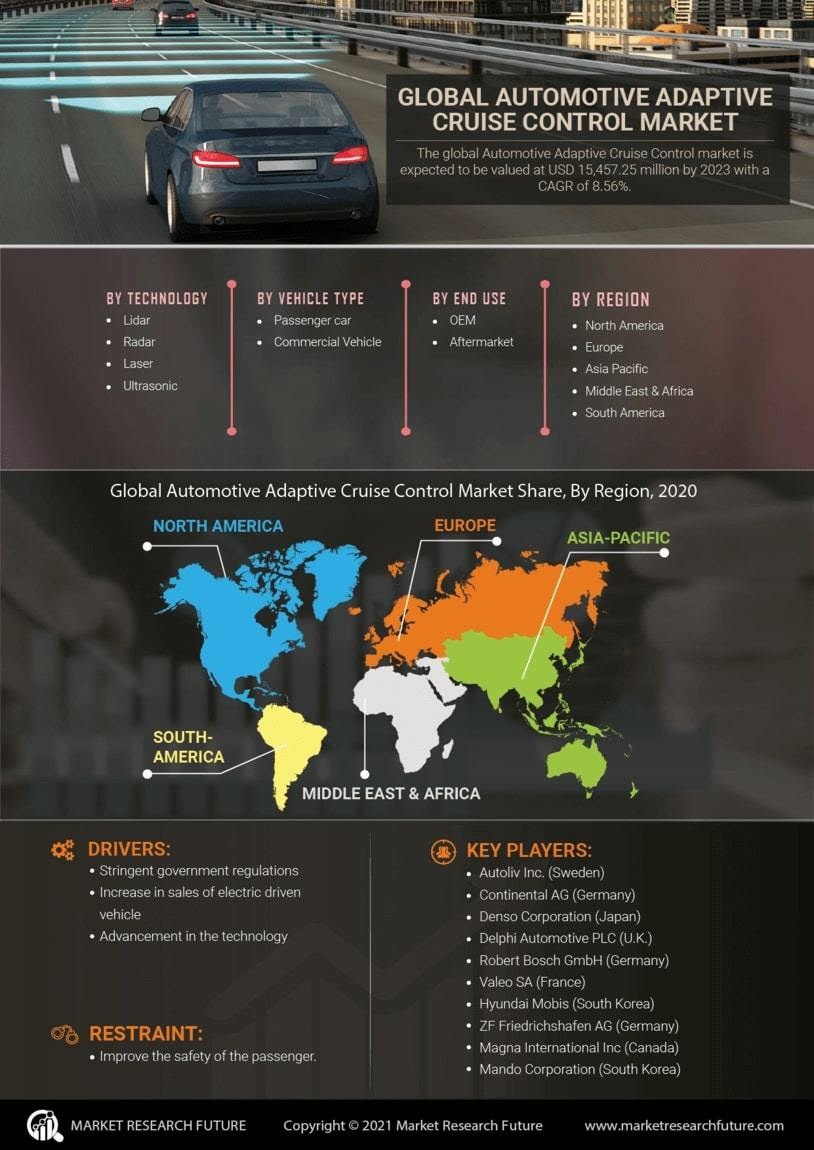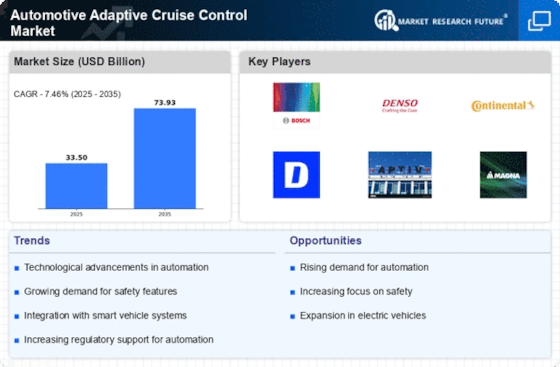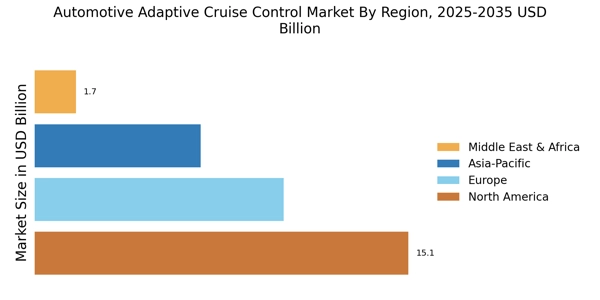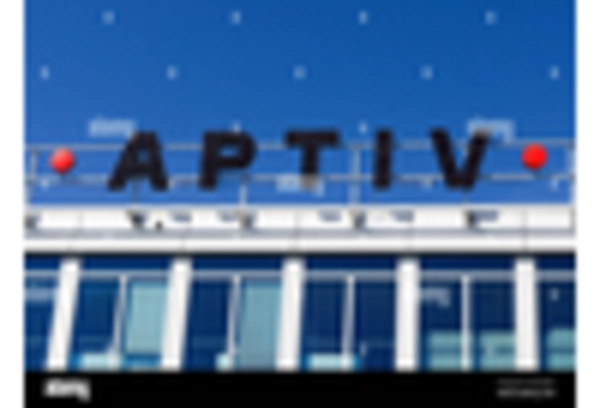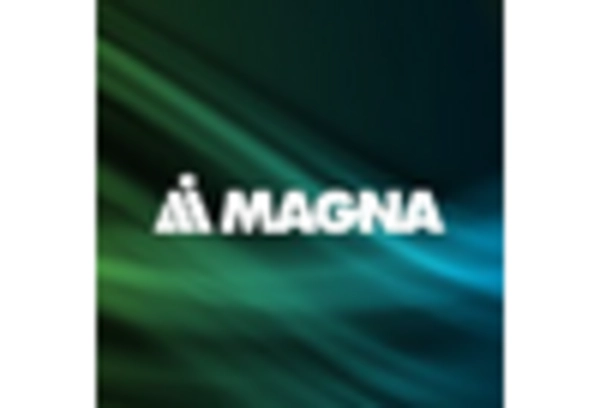Regulatory Support and Standards
Regulatory support and the establishment of safety standards are crucial factors influencing the Automotive Adaptive Cruise Control Market. Governments worldwide are increasingly recognizing the importance of advanced driver assistance systems (ADAS) in enhancing road safety. As a result, many countries are implementing regulations that encourage the adoption of adaptive cruise control technologies. For instance, certain regions have mandated that new vehicles must include specific safety features, which often encompass adaptive cruise control systems. This regulatory push is expected to drive market growth, as manufacturers are compelled to comply with these standards. Furthermore, the establishment of uniform safety standards across different markets may facilitate The Automotive Adaptive Cruise Control Industry, allowing for greater interoperability and consumer confidence in these technologies.
Consumer Demand for Enhanced Safety Features
Consumer demand for enhanced safety features is a pivotal driver in the Automotive Adaptive Cruise Control Market. As awareness of road safety increases, consumers are increasingly seeking vehicles equipped with advanced safety technologies, including adaptive cruise control. According to recent surveys, nearly 70% of consumers express a preference for vehicles that offer automated driving features, which include adaptive cruise control systems. This growing demand is prompting manufacturers to invest in the development and integration of these systems into their vehicle lineups. The Automotive Adaptive Cruise Control Market is thus likely to benefit from this trend, as automakers strive to meet consumer expectations for safety and convenience. Additionally, regulatory bodies are also advocating for the inclusion of such technologies in new vehicles, further propelling market growth.
Integration with Connected Vehicle Technologies
The integration of adaptive cruise control systems with connected vehicle technologies is emerging as a significant driver in the Automotive Adaptive Cruise Control Market. As vehicles become more interconnected, the ability to communicate with other vehicles and infrastructure enhances the functionality of adaptive cruise control systems. This connectivity allows for real-time data exchange, enabling vehicles to anticipate traffic conditions and adjust speeds accordingly. The proliferation of vehicle-to-everything (V2X) communication is expected to revolutionize the way adaptive cruise control operates, making it more efficient and responsive. As of 2025, the market for connected vehicle technologies is projected to grow substantially, which will likely benefit the Automotive Adaptive Cruise Control Market by fostering the development of more advanced and integrated systems.
Rising Fuel Efficiency and Environmental Concerns
The rising emphasis on fuel efficiency and environmental concerns is significantly impacting the Automotive Adaptive Cruise Control Market. Adaptive cruise control systems contribute to improved fuel economy by optimizing vehicle speed and reducing unnecessary acceleration and braking. As fuel prices continue to fluctuate, consumers are increasingly inclined to invest in technologies that enhance fuel efficiency. Reports indicate that vehicles equipped with adaptive cruise control can achieve fuel savings of up to 15%. This potential for reduced fuel consumption aligns with the growing global focus on sustainability and reducing carbon emissions. Consequently, the Automotive Adaptive Cruise Control Market is likely to see increased adoption as consumers and manufacturers alike prioritize environmentally friendly technologies.
Technological Advancements in Automotive Adaptive Cruise Control
The Automotive Adaptive Cruise Control Market is experiencing a surge in technological advancements, particularly in sensor and software technologies. Innovations such as LiDAR, radar, and camera systems are enhancing the precision and reliability of adaptive cruise control systems. These technologies enable vehicles to maintain safe distances from other vehicles, adjust speeds automatically, and respond to changing traffic conditions. As of 2025, the market is projected to grow at a compound annual growth rate of approximately 10%, driven by these advancements. Furthermore, the integration of artificial intelligence and machine learning algorithms is likely to improve the functionality of adaptive cruise control systems, making them more intuitive and responsive. This trend indicates a shift towards more sophisticated automotive technologies, which is expected to bolster the Automotive Adaptive Cruise Control Market significantly.
